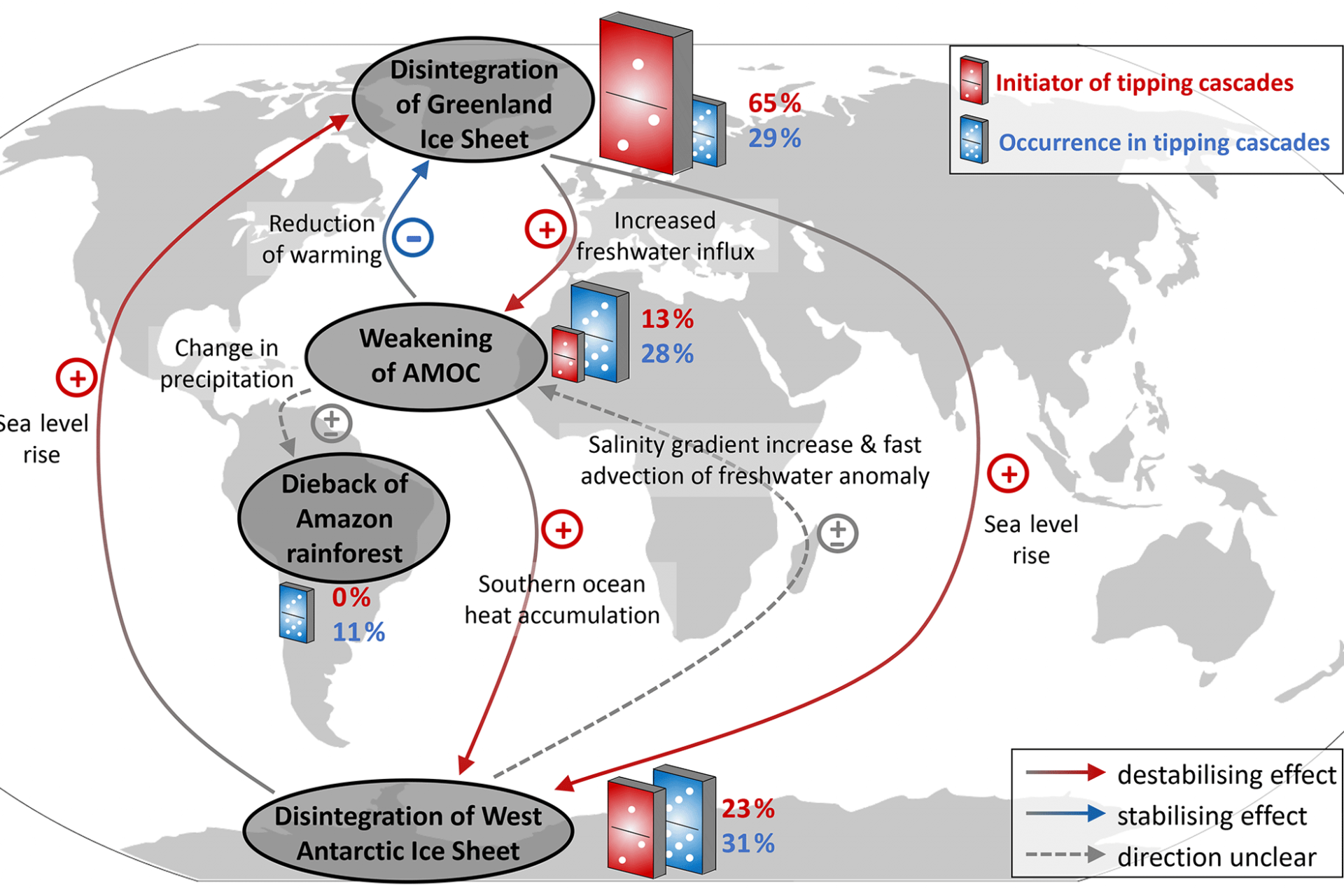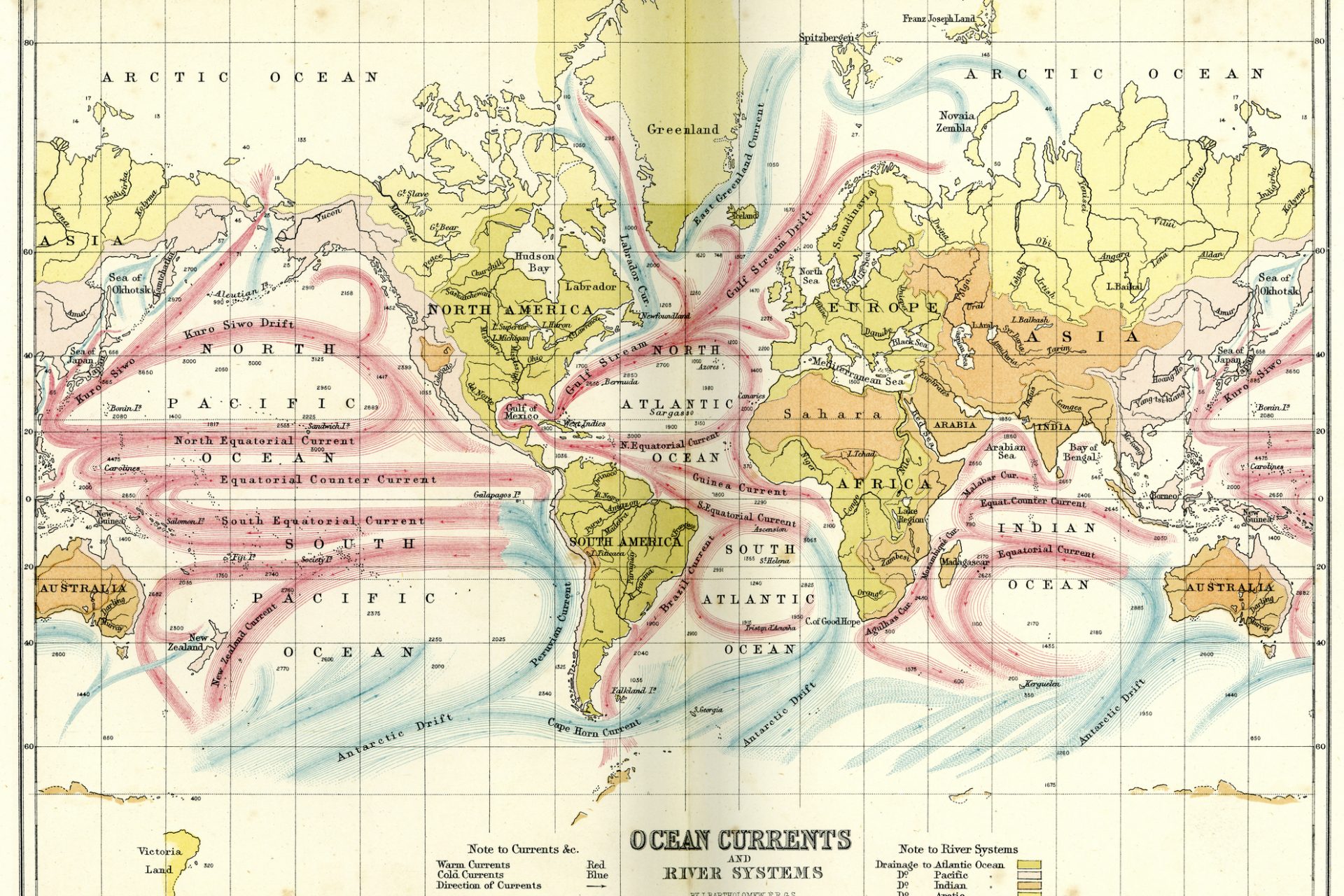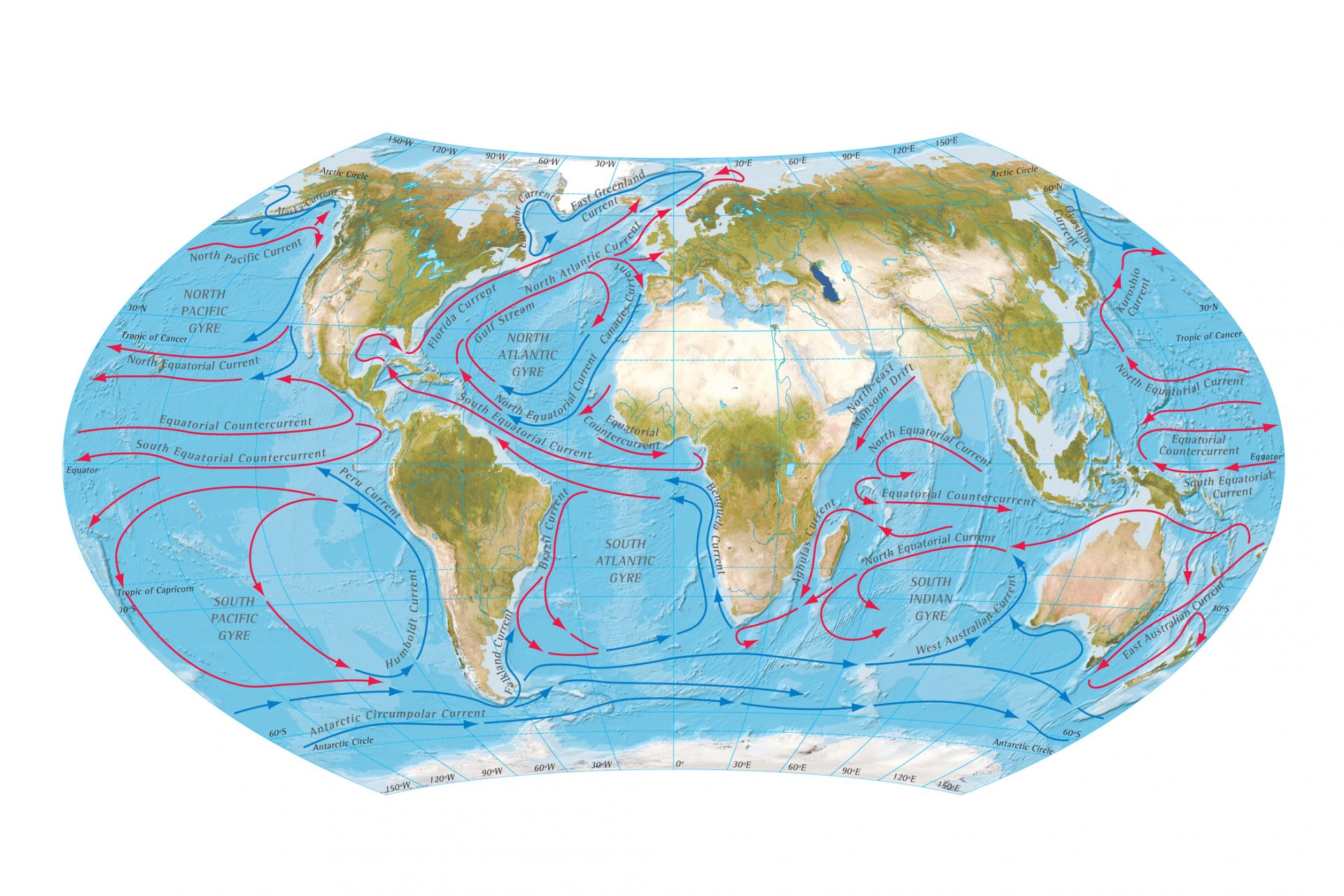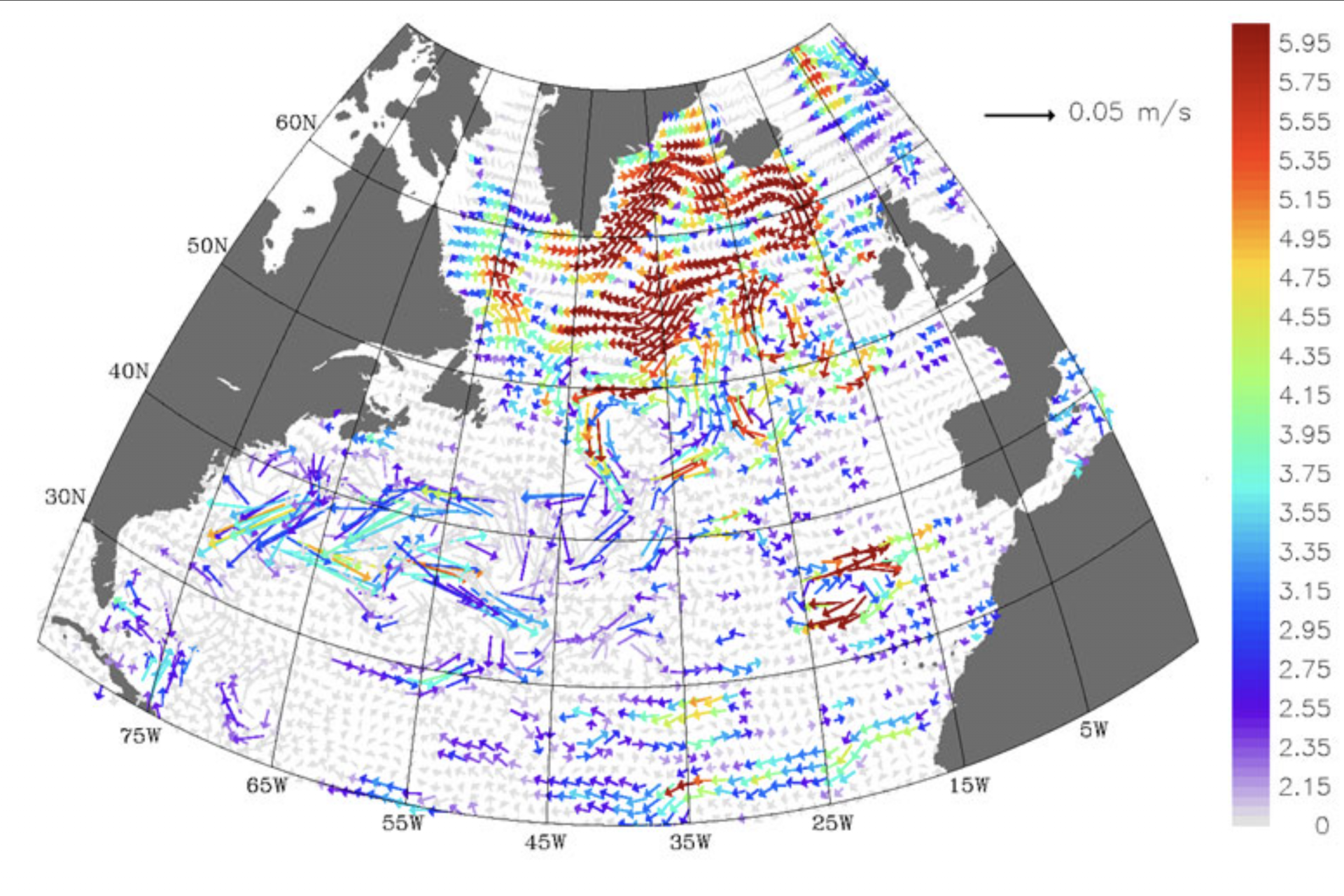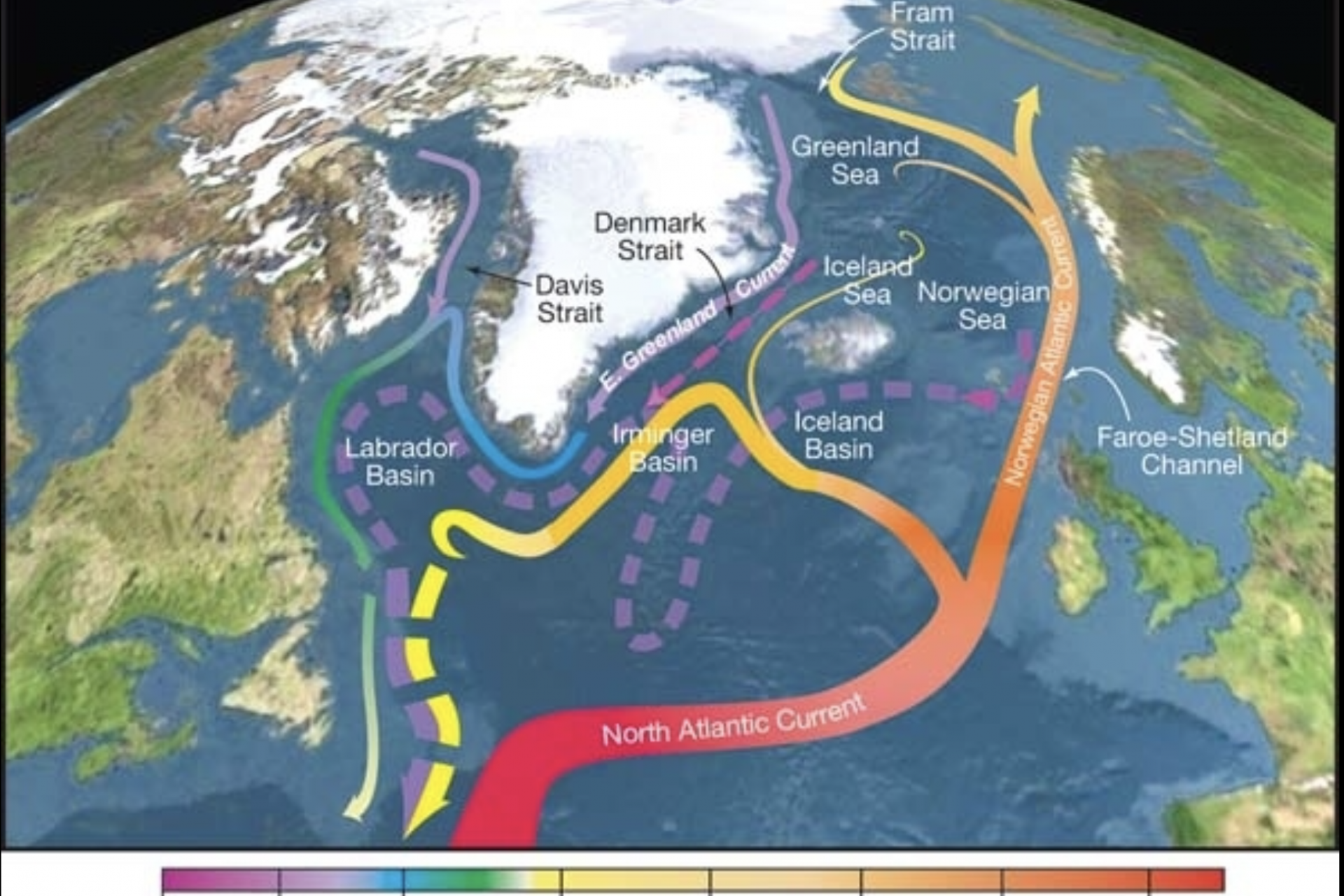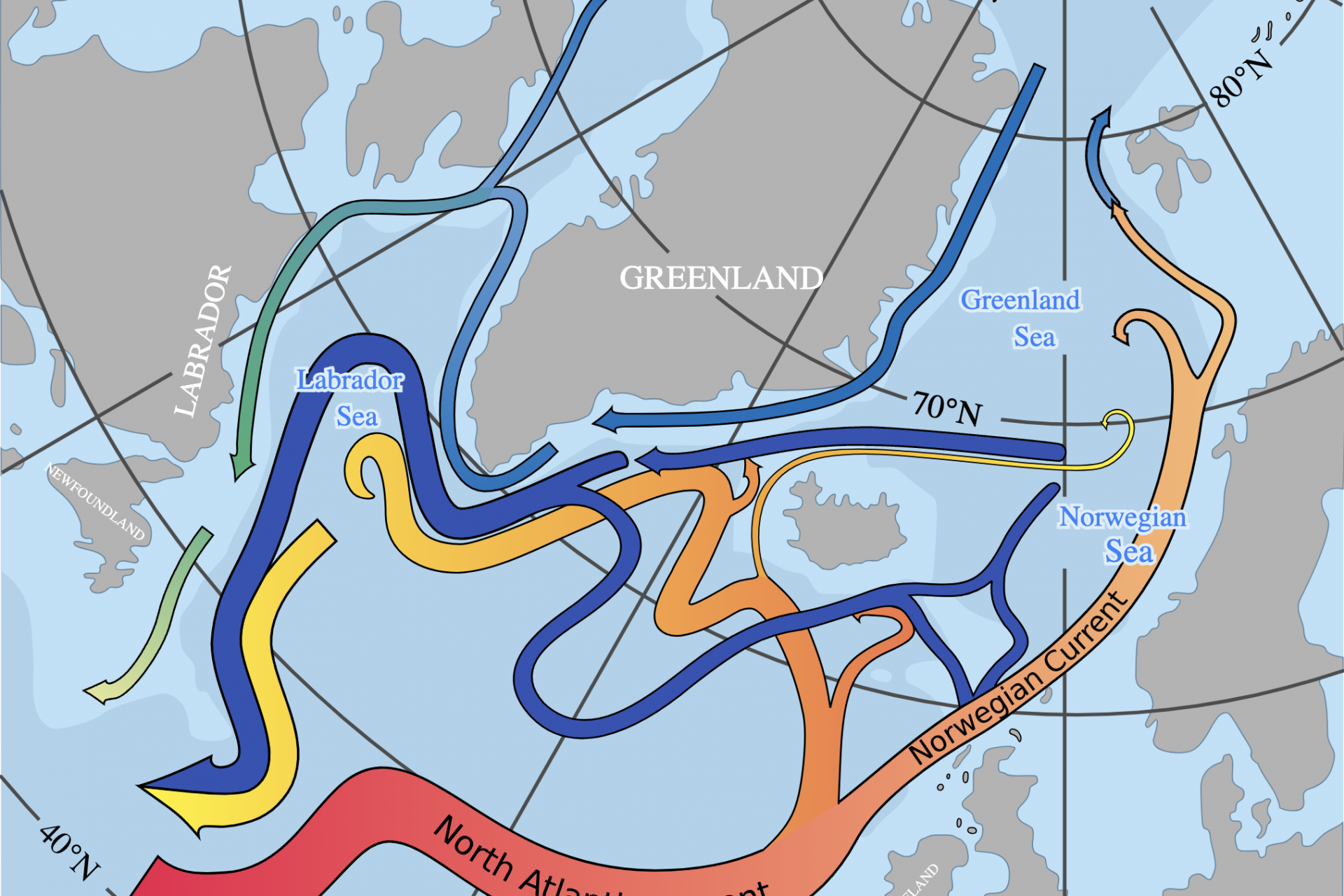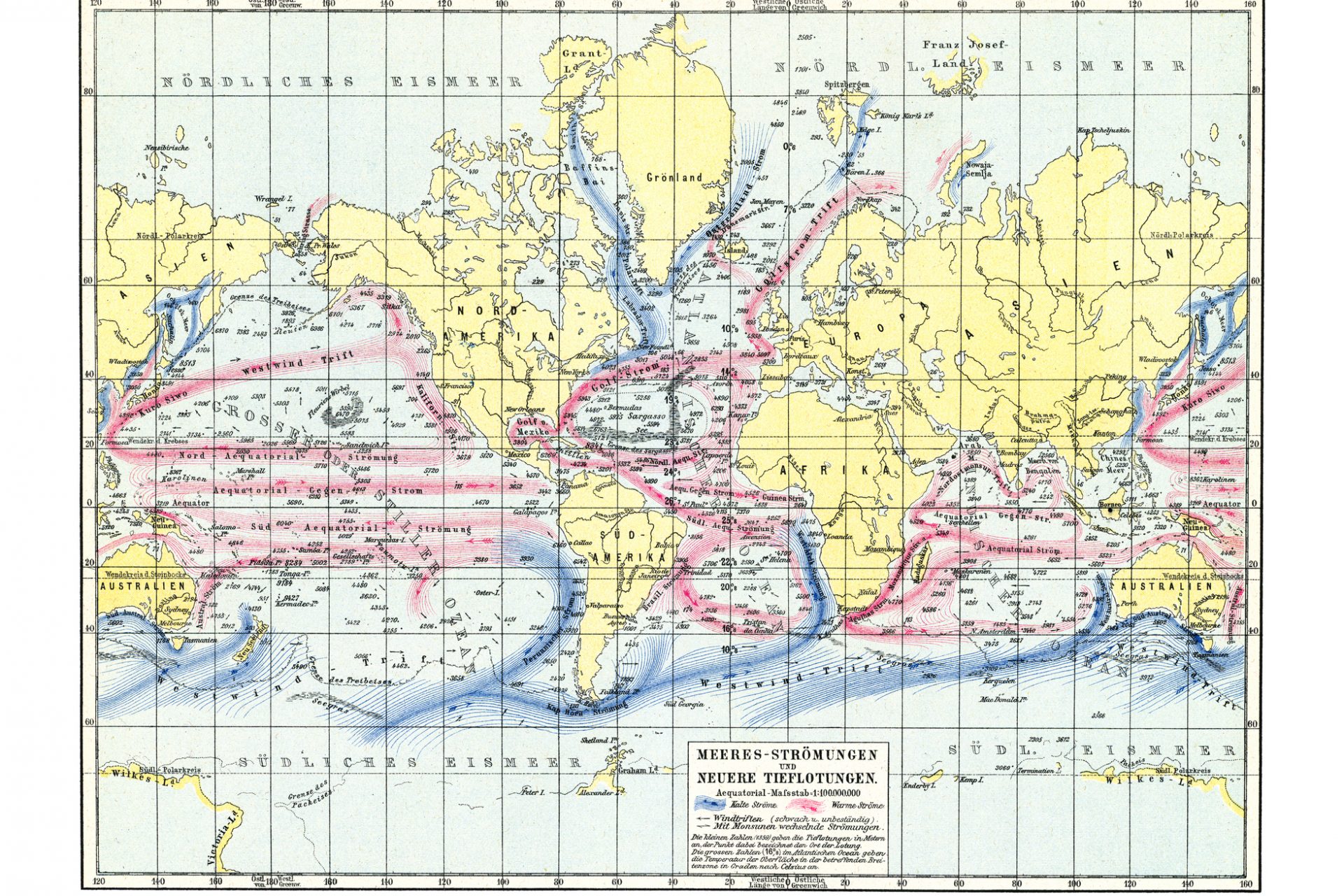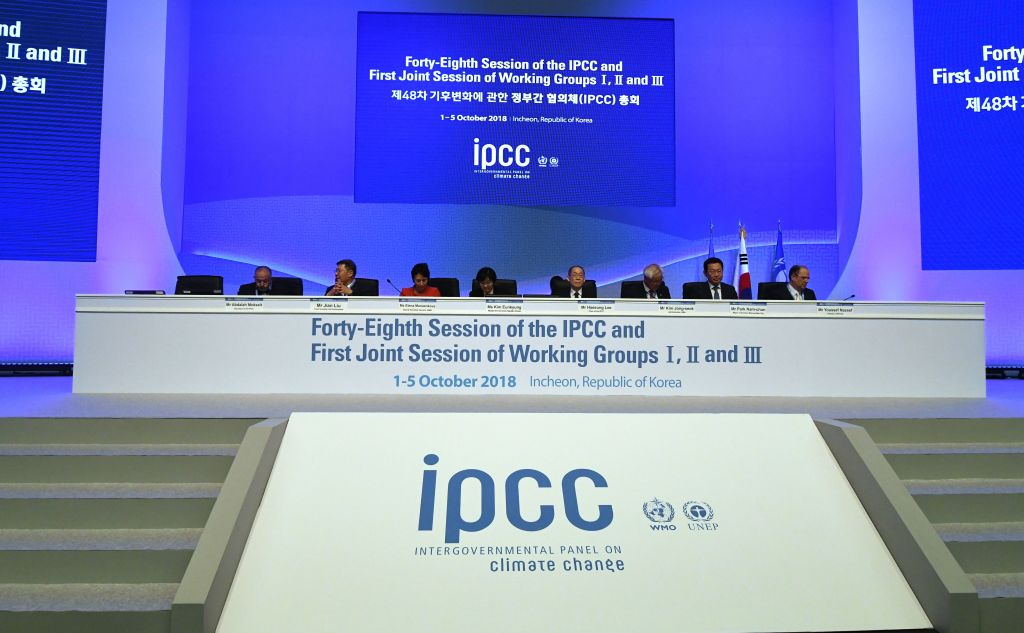Researchers predicted a key ocean current system could collapse in 2025
In July 2023, a group of climate researchers published a concerning study predicting the collapse of an important ocean current system much earlier than other estimations. The researchers noted the collapse could come as early as 2025. Here's what they believed was happening.
Published in the journal Nature, the study suggested that the ocean current system known as the Atlantic Meridional Overturning Circulation was likely at a tipping point and could collapse as early as 2025 or as far away as 2095. But why would this be a problem?
Photo Credit: Wiki Commons By Study Authors: Nico Wunderling, Jonathan F. Donges, Jürgen Kurths, and Ricarda Winkelmann, CC BY 4.0
The Atlantic Meridional Overturning Circulation is an ocean current system that includes the Gulf Stream and assists in regulating the Northern Hemisphere’s climate by bringing warm tropical waters north and colder northern water south according to Live Science.
However, this vital ocean current system is being threatened by climate change and the rising ocean temperatures brought on by the world’s warming. This matters because the Atlantic Meridional Overturning Circulation's collapse could cause a whole host of problems.
For example, Live Science noted that temperatures would plummet, ocean ecosystems would collapse, and storms would increase globally. But is this scenario really possible? Some researchers say yes while others aren't so sure the ocean system's imminent collapse isn't realistic.
A group of researchers from the University of CopenhagenJuly 2023 study, believe the collapse is coming and they used sea surface temperature data starting in the 1800s to help them predict when the collapse would occur according to a breakdown of the study from NBC News.
Photo Credit: Wiki Commons By NASA
The science behind how the study’s authors calculated the tipping point can be a little difficult to understand but the researchers noted they looked at the surface temperature readings from a subpolar gyre between 1870 and 2020 to make their prediction.
Photo Credit: Wiki Commons By R. Curry, Woods Hole Oceanographic Institution/Science/USGCRP, CC BY 3.0
Based on their calculations, the researchers estimated with what they said was a 95% certainty that the collapse of the Atlantic Meridional Overturning Circulation is coming at some point in the mid-century of the current future emissions scenario plays out.
Photo Credit: Wiki Commons By Goddard Space Flight Center Derivative work MagentaGreen (SVG Version)
"The expected tipping point, given that we continue business as usual with greenhouse gas emissions, is much earlier than we expected," Susanne Ditlevsen, study co-author and professor at the University of Copenhagen explained to Live Science.
“We were actually bewildered,” Ditlevsen added, and that should give you pause. If the researchers from the University of Copenhagen are right, the forthcoming collapse of the Atlantic Meridional Overturning Circulation could be very bad for our world.
In 2021, The Guardian wrote that such an event would have catastrophic consequences for the planet. The rains people in India, South America, and West Africa depend on to grow their food would be severely disrupted while intense storms would increase in Europe.
The collapse of the Atlantic Meridional Overturning Circulation would also endanger the Amazon rainforest and the Atlantic ice sheets according to one scientist who spoke with The Guardian, though they added the ocean system’s collapse was hard to predict.
Now that scientists have a timeline for the Atlantic Meridional Overturning Circulation’s possible collapse, it seems like it would be case closed. But not all scientists are sure the researchers from Copenhagen are right about the timing of the collapse.
Jochem Marotzke is the Director of the Max Planck Institute for Meteorology in Hamburg as well as a professor of climate science and he explained to Live Science in an email: "While the mathematics seem expertly done, the physical foundation is extremely shaky.”
“It rests on the assumption that the collapse shown by simplified models correctly describes reality — but we simply do not know, and there is no serious discussion of these simplified models' shortcomings,” Marotzke added.
Marotzke went on to state that the paper may have been a valid exercise in what could happen but added it fell short of its goal to explain how the Atlantic Meridional Overturning Circulation will evolve based on the observational data.
Whether or not the model proves true is up to scientists to work out. What we do know now is that the Atlantic Meridional Overturning Circulation is weakening based on older research from the United Nations Intergovernmental Panel on Climate Change.
The UN panel found the Atlantic Meridional Overturning Circulation is likely to decline over the course of the twenty-first century and that there is a medium confidence among its scientists that the ocean system will only weaken and not collapse before 2100.
More for you
Top Stories




